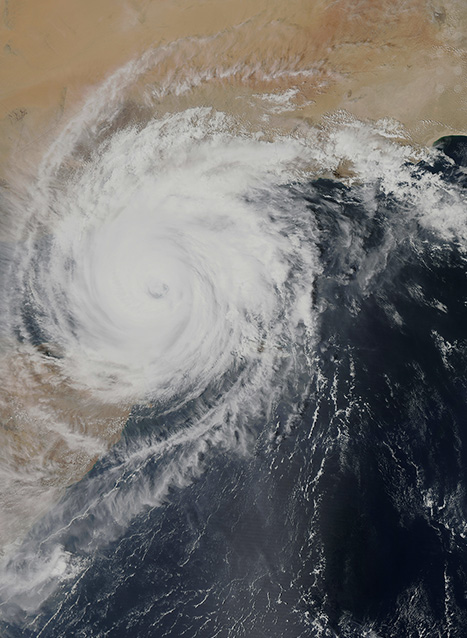Evacuations from High-Risk Locations Call +44 (0)1202 308810 or Contact Us →

Hurricane Ophelia Strikes the British Isles – Environmental Risks
16 Oct 2017
On the morning of 16 October 2017, the remnants of Hurricane Ophelia made landfall in the Republic of Ireland as travel disruption has been experienced across the British Isles. At least two people have been killed. A woman died after a tree fell on her car in West Waterford, while another death has been reported in Tipperary. About 230,000 homes have been left without power across the Republic of Ireland and there have been warnings that it may take several days before power is restored.
Key Points
- The remnants of Hurricane Ophelia have made landfall in the Republic of Ireland.
- Extensive travel disruptions have been reported as Irish residents have been told to stay indoors.
- At least two people have been killed, while up to 230,000 homes and business have been left without power.
Situational Summary
Environmental: On the morning of 16 October 2017, the remnants of Hurricane Ophelia made landfall in the Republic of Ireland as travel disruption has been experienced across the British Isles. At least two people have been killed. A woman died after a tree fell on her car in West Waterford, while another death has been reported in Tipperary. About 230,000 homes have been left without power across the Republic of Ireland and there have been warnings that it may take several days before power is restored.
The Irish government have deployed the army and have urged all its residents to stay indoors and avoid travel unless their journey is absolutely necessary; a red alert has been issued due to a threat to life and property. Winds reaching 176km/h and waves of over eight metres have been reported off the coast of southern Ireland. Present reporting suggests this is the most powerful storm to hit Ireland in 50 years.
The storm is expected to head northeast from the southwest of Ireland. The United Kingdom’s meteorological office has advised that there is a potential risk to life as a result of Ophelia. An amber weather warning has been issued for Northern Ireland, Wales, south west Scotland (where the storm is due to make landfall early morning on 17 October), and the Isle of Man. In Wales, 4,000 homes have been left without power. Flooding is expected in many places across the British Isles with three ‘flood warnings’ published, while 13 ‘flood alerts’ are in place to suggest that flooding is possible in these locations. Government buildings and schools have been closed across the region.
Transport
Hurricane Ophelia has caused extensive travel disruption. Dublin Airport has reported that 130 flights have been cancelled impacting short and long-haul journeys. All flights have been cancelled for the remainder of 16 October at Cork Airport. Some delays have been reported at Shannon Airport, which, as well as Belfast Airport, has advised passengers to check with their airlines before making travel plans. At Manchester Airport, 20 flights have been cancelled and flights grounded. No flights to Ireland will depart from Edinburgh Airport but it remains unaffected otherwise, at present. All flights have been cancelled by the Isle of Man’s airport. Some cancellations have also been reported at Cardiff Airport. All trains have been cancelled in the Republic of Ireland but will continue tomorrow, 17 October, if it is safe to do so. No Ophelia-related travel disruption has been reported on the British rail network at this time. Numerous ferry journeys, including between Liverpool and Dublin, and across Scotland have been cancelled. A number of road closures, including of bridges, have been reported across the British Isles.
SECURITY ADVICE
EnvironmentModerateTravellers are strongly advised to follow the advice of local officials in Ireland and stay indoors unless a journey is absolutely necessary. It is important to follow local media to understand the progress of the storm and when the threat has receded
In the next 48 hours, it is advisable to avoid low lying and coastal areas because of the increased chances of flooding from storm surges and heavy rain. It is also advised to make any alterations to accommodation to ensure adequate protection, such as sandbagging around doorways if flooding is a concern. If staying inside, a room without windows is a preferable choice. If flooding occurs, or could occur, mains power should be switched off. It is also important to keep a radio nearby, in order to stay updated on the situation. Torches should be used as emergency lighting, rather than lamps or candles, to reduce the risk of unintended fires.
Food supplies should consist of non-perishable items and be enough to support each family member for at least three days; it is unclear when power might be restored to the thousands of homes impacted. One gallon of potable water per day per person is also recommended. Travellers should have an emergency medical kit with them. It is also advisable that families and loved ones are informed of your current position and kept regularly updated so that they can seek assistance if they lose contact with you. Travellers who are on holiday should follow the instructions of the hotel authorities.
Travellers may wish to use travel-tracking technology with an intelligence feed to stay updated of storm and security related events. All travellers with air, sea, and rail journeys are advised to check with their operators before travelling. Road travellers should follow local media or highways agencies for any road closures.